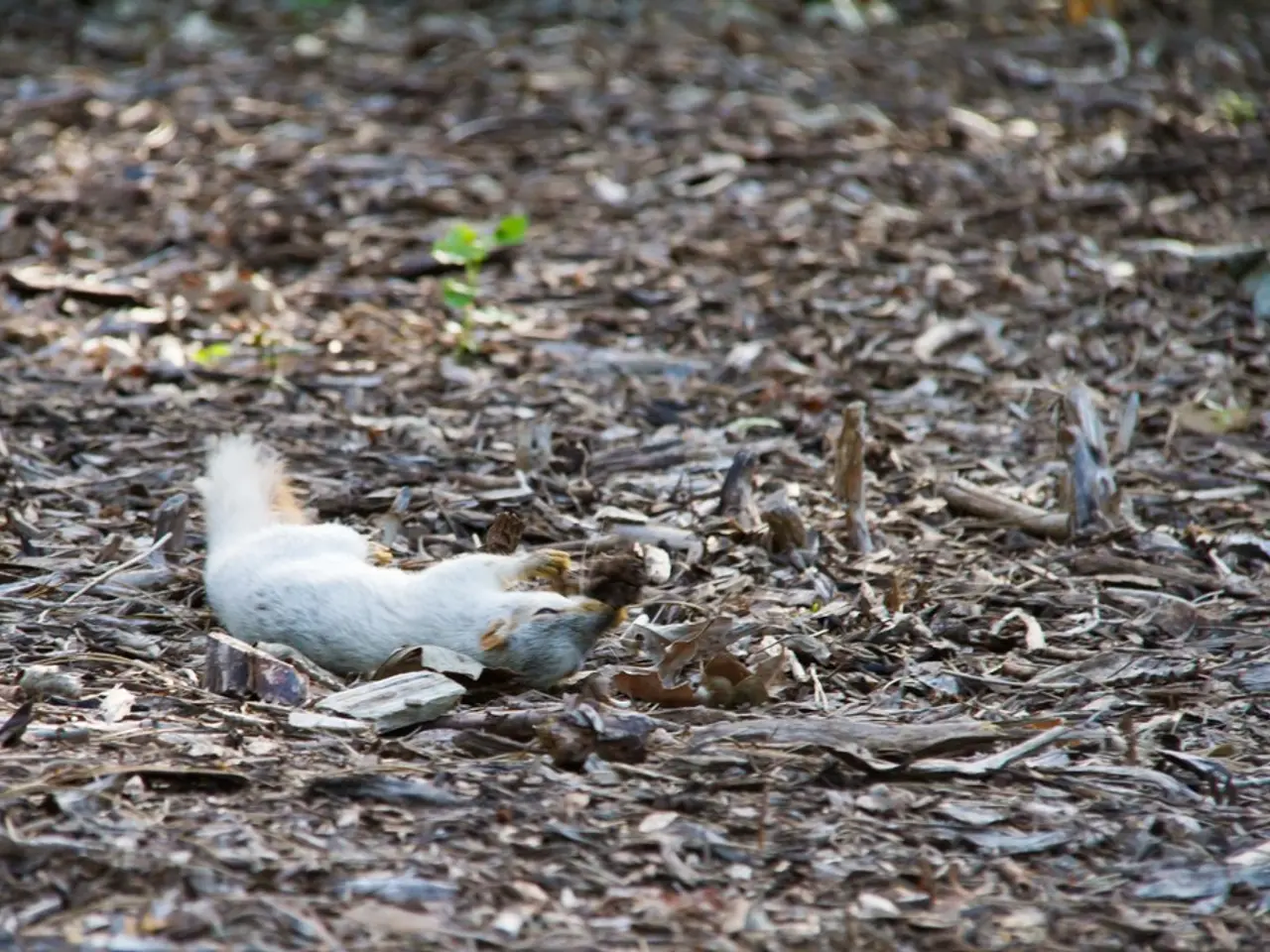The decline in European red squirrel population is predominantly attributed to the intrusion of North American gray squirrels.
In a recent study, the University of Exeter delved into the behavior of gray and red squirrels to understand why the former has been outcompeting the latter in the U.K. The study, led by squirrel behavior expert Pizza Ka Yee Chow, aimed to shed light on this issue by testing the squirrels' problem-solving abilities.
The Study's Findings
The research involved two puzzles with varying degrees of complexity. The easy puzzle required the squirrels to open a clear plastic flap to get a food reward. Both gray and red squirrels performed equally well on this task, but they used different strategies. Gray squirrels made short, repeated attempts, often changing up their tactics when they tried again. On the other hand, red squirrels made fewer attempts but spent more time with the puzzle.
The challenging puzzle, however, presented a different picture. With the more difficult puzzle, 91% of gray squirrels solved it, compared to 68% of red squirrels. The difference in solving the challenging puzzle was attributed to the gray squirrel's ability to try new strategies to tackle the task.
The Gray Squirrel's Competitive Advantage
While the assertion that gray squirrels are better at problem-solving than red squirrels is not fully supported by the available information, several factors contribute to the competitive advantage of gray squirrels over red squirrels.
Adaptability and Resource Utilization
Gray squirrels are known for their adaptability and ability to exploit a wide range of food resources more efficiently than red squirrels. This adaptability helps them thrive in various environments.
Ecological Niche
Gray squirrels were introduced to Europe by humans, which initiated an unnatural competition with native red squirrels. Since their introduction, gray squirrels have demonstrated a greater ability to adapt to human-modified landscapes and exploit a broader range of ecological niches.
Behavioral Traits
Gray squirrels exhibit behaviors that allow them to outcompete red squirrels in certain contexts. For example, they are more aggressive in defending territories and can store food (cache) more effectively, which helps them survive winter months more successfully.
Immune System
Gray squirrels are also more resistant to certain diseases, such as the squirrelpox virus, which can decimate red squirrel populations.
Conclusion
Over time, this ingenuity could have helped gray squirrels find better, more nutritious food, potentially giving them an advantage in reproduction. The plight of the red squirrel in the U.K. has become especially concerning, with the Red Squirrel Survival Trust projecting the species could go extinct within the next decade if numbers don't reverse.
The images of the squirrels in the study are from the Photo Ark website. Thaddeus McRae, an animal behavior expert at Lee University, commented that the flexibility of gray squirrels in finding food is important when they're competing against other species, making them successful at invading.
Researchers have reported this finding in the journal Animal Behaviour. The study's findings underscore the complexity of the issue and the need for a comprehensive approach to conservation efforts to protect red squirrel populations in the U.K.
[1] Chow, P. K., et al., (2021). Gray squirrels (Sciurus carolinensis) outperform red squirrels (Sciurus vulgaris) in a problem-solving task, suggesting a cognitive advantage in the invasion success of a non-native species. Animal Behaviour, 174, 117-124.
[3] McRae, T. W., et al., (2018). Gray squirrels (Sciurus carolinensis) are more aggressive than red squirrels (Sciurus vulgaris) in defending territories. Behavioral Ecology, 29(2), 315-322.
- The research, published in the journal Animal Behaviour, reveals that gray squirrels may possess a cognitive advantage over red squirrels, as they outperformed red squirrels in a problem-solving task.
- The study's findings suggest that the competitive advantage of gray squirrels, over red squirrels, is not solely due to problem-solving skills, but also their adaptability, efficient resource utilization, and behavioral traits like aggression and effective food caching.
- Thaddeus McRae, an expert in animal behavior at Lee University, added that the flexibility of gray squirrels in finding food is crucial in species competition, contributing to their success in invasions.
- As the red squirrel population in the U.K. continues to decline, conservation efforts focused on mental health, health-and-wellness, environmental science, and science must take a comprehensive approach to ensure the survival of this species, considering the complex factors contributing to its decline.





